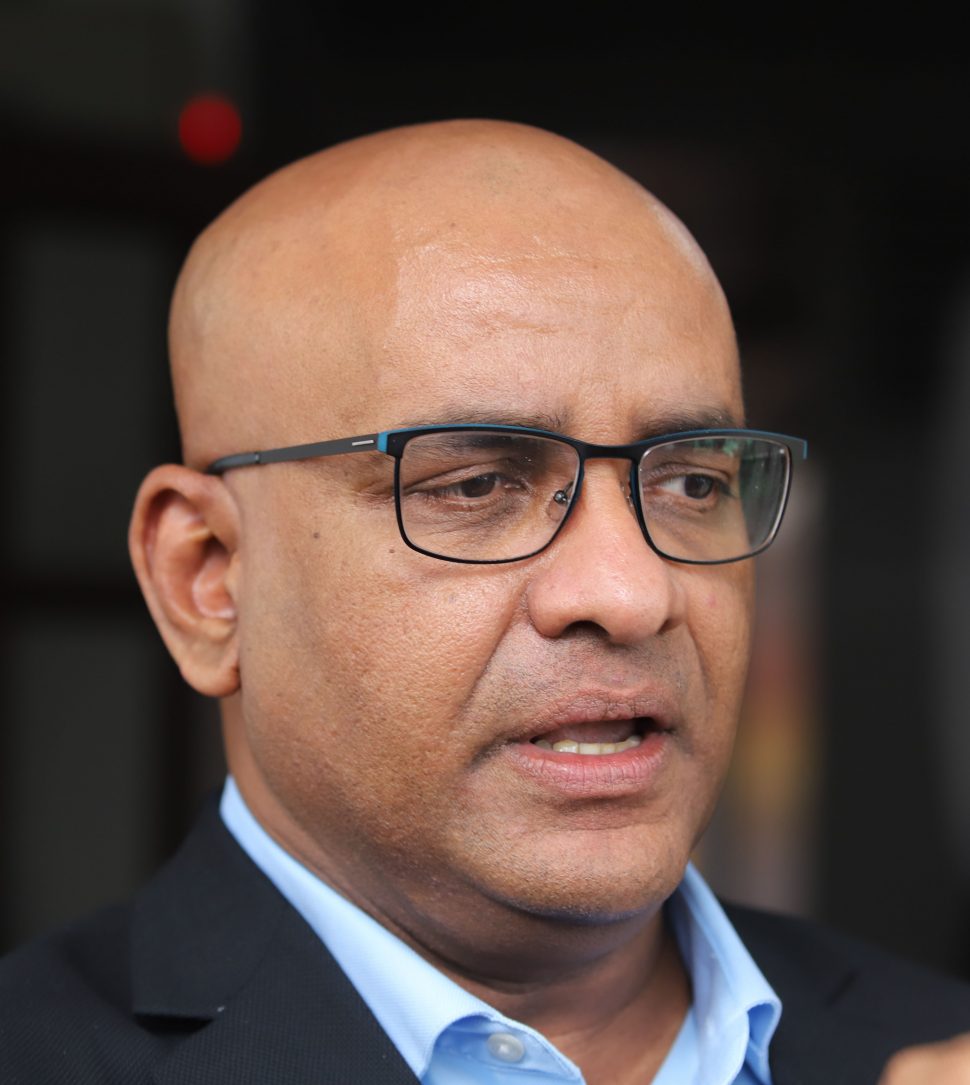Vice President Bharrat Jagdeo yesterday disclosed that the next general elections will likely be held in November 2025, while Budget 2024 is expected to be presented to the National Assembly by the end of this month.
Questioned about what will be the main priorities targeted for the oil and gas industry, given that elections will be held next year, Jagdeo said, “Clearly… in the oil and gas, we have done what we promised we will do so far. We made it clear. We’ve given explanations on some of the things that we will do but not now, we’ve phased them. The petroleum commission, we said we’re building capacity in the ministry. Now in this period of the creation of the framework for managing, framework for accountability in the sector that you need more, you need swifter, more political action to pass like the NRF, the Petroleum Activities Bill, to get the new PSA, all… things had to be driven politically to achieve them.”
According to Jagdeo, “a technical body” would not have had the same sense of urgency to get those done. “We promised that [at] election, that’s why we did those.”
He noted that people assessing the sector in Guyana from 2020 to the present would be able to see the massive changes “in the tools available to the country” to manage the sector. “Environmental, technical, almost everything,” while emphasising that there was an evolution in the framework with only the “jaundiced” not being able to see that. He then declared the ultimate goal to be a petroleum commission.
When asked about the Skeldon sugar factory, Jagdeo responded that the government has a strategy to deal with that estate, more of which will be revealed during Budget 2024.
The Skeldon Sugar Modernisation Programme was one of the major disasters of the Jagdeo administration.
The Skeldon factory, built over several years by the Chinese company CNTIC and commissioned in 2009 at a cost of around US$187 million, turned out to be the largest failed public sector project in the country’s history. It led Jagdeo to warn in October 2010, that if the factory failed then “sugar was dead.” He vowed to take a hands-on approach. “So even if it means personally, I have to get involved, I will get involved to ensure that it is fixed… that it’s delivering the kind of results that it should deliver so that we can safeguard the sugar industry.”
Unfortunately, his interventions were to no avail and the Skeldon factory drained GuySuCo financially. The factory’s annual projected output of 116,000 tonnes of sugar was never met despite costly remedial interventions by a South African firm. Its highest annual output of 39,153 tonnes was achieved in 2015.
It got nowhere near to its intended grinding figure of 350 tonnes of cane per hour and the situation persisted all through the succeeding Ramotar administration and the first two years of the Granger administration until the factory was shut at the end of 2017 preparatory to divestment/privatisation.
The Skeldon factory also had a high cost of production of sugar – around US 40 cents per pound – far higher than world market prices, at a time when Guyana no longer had access to preferentially priced markets.
Meanwhile, at the press conference yesterday, Jagdeo also spoke of his party’s manifesto which outlined its plans, saying there was evidence now available showing they have “almost accomplished all of it.”
He added, “We have several documents now in the public domain that outline in every sector what we intend to achieve in the long run and how we are going about through projects and programmes and policies now in budgets and at various forums to achieve those.” He stressed that this can easily be fact-checked.






